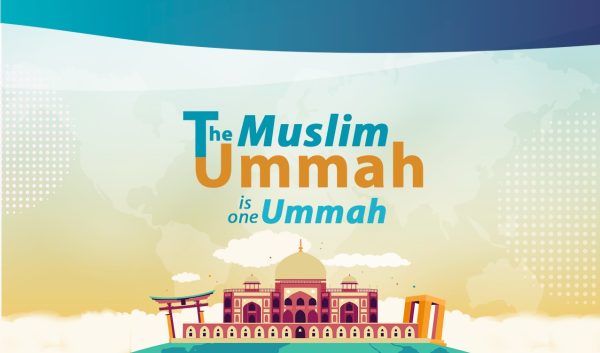We may not realize this but most of the calamities and trials in the worldly life befall a person due to his sins and acts of disobedience. This is what Allah (عَزَّوَجَلَّ) has said in the Holy Qur’an:
وَمَا أَصَابَكُم مِّن مُّصِيبَةٍ فَبِمَا كَسَبَتْ أَيْدِيكُمْ وَيَعْفُو عَن كَثِيرٍ
“And whatever strikes you of disaster – it is for what your hands have earned; but He pardons much.”
[Ash-Shura: 30]
In this article, we will discuss one of the three things that prevent calamities before they afflicted a person, whether you are already aware of these trials or not. What prevents calamities and trials are mentioned in the Holy Qur’an and Hadith of the Prophet ﷺ and it is very easy for every Muslim to adopt and practice.
- Supplication (Du’a)
The most important way to purify oneself and others, to achieve success, eternal well-being, protection from calamities and punishments as well as deliverance from current sufferings is to pray to Allah (عَزَّوَجَلَّ) with sincerity and heartfelt attention. Allah (عَزَّوَجَلَّ) loves supplication and orders us to do supplicate. Supplication is the best remedy for present and future calamities. Allah (عَزَّوَجَلَّ) says in the Holy Qur’an:
وَقَالَ رَبُّكُمُ ادْعُونِي أَسْتَجِبْ لَكُمْ إِنَّ الَّذِينَ يَسْتَكْبِرُونَ عَنْ عِبَادَتِي سَيَدْخُلُونَ جَهَنَّمَ دَاخِرِين
And your Lord says, “Call upon Me; I will respond to you.” Indeed, those who disdain My worship will enter Hell [rendered] contemptible.
[Ghafir: 60]
Here are some verses and hadiths about the importance and virtue of supplication.
Supplication Is Obedience To Allah (SWT) ‘s Command
Allah (عَزَّوَجَلَّ) says in the Holy Qur’an:
وَادْعُوهُ مُخْلِصِينَ لَهُ الدِّينَ
And invoke Him, sincere to Him in religion.
[Al-A’raf: 29]
The meaning of “ad–deen” here is worship. What it means is that: worship Him purely and do not associate anyone else in calling upon Him and worshiping Him.
The Prophet ﷺ said:
“Du’a (supplication) is worship.”
(Riyad as-Salihin 1465)
The Most Honorable Thing With Allah (عَزَّوَجَلَّ) Is Supplication
Abu Hurairah narrated that:
The Prophet ﷺ said: “There is nothing more honorable with Allah [Most High] than supplication.”
(Jami` at-Tirmidhi 3370)
Supplication Changes One’s Destiny
The Messenger of Allah (ﷺ) said:
”Nothing extends one’s life span but righteousness, nothing averts the Divine Decree but supplication.”
(Sunan Ibn Majah 90)
Supplication Protects Against Both Impending And Present Afflictions
Ibn `Umar narrated that the Messenger of Allah (ﷺ) said:
“The supplication benefits against that which strikes and that which does not strike, so hold fast, O worshippers of Allah, to supplication.”
(Sahih al-Jami’ 3409)
Allah (عَزَّوَجَلَّ) Is With The Supplicant
Narrated Abu Huraira that the Prophet (ﷺ) said:
“Allah says: ‘I am just as My slave thinks I am, (i.e. I am able to do for him what he thinks I can do for him) and I am with him if He remembers Me.”
(Sahih al-Bukhari 7405)
Supplication Is Worship
Narrated An-Nu’man bin Bashir that the Prophet (ﷺ) said:
“Supplication is the worship.”
(Jami` at-Tirmidhi 3247)
How is Supplication Worship?
A supplicant prays when there are no apparent ways for the attainment of a thing or the removal of an affliction. And when he calls to Allah (عَزَّوَجَلَّ), he calls with the understanding that Allah (عَزَّوَجَلَّ) is listening. At the same time, the person making the du’a also believes that Allah (عَزَّوَجَلَّ) has such control over what can relieve him of his pain or fulfill the needs. It is as if Allah (عَزَّوَجَلَّ) must be Omniscient and All-Hearing and All-Seeing. And these attributes cannot belong to anyone other than the Lord.
Secondly, praying to Him is an act of futility unless one acknowledges His sovereignty and the fact that He is the Disposer of all affairs. It is as if recognizing the special attributes of Allah (عَزَّوَجَلَّ) in another entity is to consider the other as an equivalent or a partner of Allah (عَزَّوَجَلَّ), and this is shirk. The person who has given this position of divinity to a being other than Allah (عَزَّوَجَلَّ) automatically descends to the position of servitude to that entity and considers it god. The one being called upon is worshipped and the one calling is the worshipper. Hence, it is important to not invoke anyone else or anything else except Allah (عَزَّوَجَلَّ).
Those Who Do Not Call Upon Allah (عَزَّوَجَلَّ) Are Arrogant
Allah (عَزَّوَجَلَّ) says in the Holy Qur’an:
إِنَّ الَّذِينَ يَسْتَكْبِرُونَ عَنْ عِبَادَتِي سَيَدْخُلُونَ جَهَنَّمَ دَاخِرِينَ
Indeed, those who disdain My worship will enter Hell [rendered] contemptible.
[Ghafir: 60]
This is proof that supplication is worship and invocation is servitude. Whoever calls upon Allah (عَزَّوَجَلَّ), asks Him, supplicates to Him and is worshiping Him Alone. Whoever calls upon anyone other than Him for supernatural things and says, “Ya Ali Madad”, “Ya Shaykh Abd al-Qadir Jilani give me something in the name of Allah,” or calls upon Baha ul-Haq or a self-appointed giver, Dastgir, Ganj Bakhsh or Gharib Nawaz and requests that the sinking boat be shored up, is worshipping them and it is committing the great crime of shirk with Allah (عَزَّوَجَلَّ), which is unforgivable. Many who do this justify it by saying, “We only invoke these great beings and do not worship them,” are in complete deception as invocation is worship in of itself. It is clear from the above verse that supplication or calling upon someone to fulfill one’s needs or to ask for relief from afflictions and worship are synonymous.
Supplication Is A Means To Avoid The Anger/ Wrath Of Allah (عَزَّوَجَلَّ)
Abu Hurairah (رَضِيَ ٱللَّٰهُ عَنْهُ) narrated that the Messenger of Allah (ﷺ) said:
“Indeed, he who does not ask Allah, he gets angry with him.”
(Jami` at-Tirmidhi 3373)
Supplication Is The Reason For Protection From Despair
Abu Hurairah (رَضِيَ ٱللَّٰهُ عَنْهُ) narrated that the Messenger of Allah (ﷺ) said:
“The most miserly of people is the one who is miserly with the greeting. The most incapable of people is the one who is the most incapable of supplication.”
(Sahih al-Jami’ 1519)
Supplication Is Always Answered
Supplication is always accepted. However, the forms or ways of acceptance of supplication may be different, the Prophet ﷺ said:
“No Muslim makes supplication – unless he is someone who has cut off his relatives – but that he is given one of three things: either his supplication is answered quickly, or it is stored up for him in the Next World, or an evil equal to it is averted from him.” It was said, “Then many supplications will be made.” He replied, “Allah has more still to give.”
(Al-Adab Al-Mufrad 710)
Prayer never goes in vain; sometimes it is accepted immediately; sometimes its acceptance may be delayed; sometimes it is stored up for the Hereafter; and sometimes evil is warded off in exchange for it.
Allah (عَزَّوَجَلَّ) Feels Shy to Leave His Servant Empty-Handed
Salman Al-Farsi narrated that the Prophet (ﷺ) said:
“Indeed, Allah, is Hayy, Generous, when a man raises his hands to Him, He feels too shy to return them to him empty and rejected.”
(Jami` at-Tirmidhi 3556)
Supplication is worship, so do the following:
- Call upon your Creator with humility and sincerity.
- Do not associate anyone with Him while supplicating and ask Him directly.
- While praying, do not refer to anyone living or dead, but instead call Him with the beautiful names of Allah (عَزَّوَجَلَّ) and your righteous deeds
- Avoid sins
- Believe in Allah (عَزَّوَجَلَّ) firmly and obey the commandments of Allah and His Messenger ﷺ
- Pray seeking repentance
- Stay away from unlawful earning
- Do not violate the rights of people and do not oppress anyone unjustl
- Supplicate when it is the best time for supplication.
If these things are kept in consideration, then Allah will indeed accept our dua.
Above all, Pray for Well-being
Well-being of a person is assessed through his blessings in religion or the world. As long as a person lives in well-being, he does not realize the value of it, and when he is deprived of it, he understands the importance of supplication for it. The Prophet ﷺ has given this advice as a mercy for his Ummah and their well-being:
“Ask God for forgiveness and health, for after being granted certainty, one is given nothing better than health.”
(Mishkat al-Masabih 2489)
The prayer of the Prophet ﷺ for the well-being
اللهم إني أسألُك العافيةَ في الدنيا والآخرةِ ، اللهم إني أسألُك العفوَ والعافيةَ في ديني ودنياي وأهلي ومالي ، اللهم استرْ عورتي وآمنْ روعاتي ، اللهم احفظْني مِن بين يديَّ ومن خلفي وعن يميني وعن شمالي ومن فوقي ، وأعوذُ بعظمتِك أن أُغتالَ مِن تحتي
“O Allah, I ask Thee for security in this world and in the Hereafter: O Allah! I ask Thee for forgiveness and security in my religion and my worldly affairs, in my family and my property; O Allah! conceal my fault or faults (according to Uthman’s version), and keep me safe from the things which I fear; O Allah! guard me in front of me and behind me, on my right hand and on my left, and from above me: and I seek in Thy greatness from receiving unexpected harm from below me.”
(Sunan Abi Dawud 5074)
Abdullah bin Umar (may Allah be pleased with them both) says that the Messenger of Allah ؑﷺ did not miss these supplications in the morning and in the evening.
May Allah (عَزَّوَجَلَّ) make us from amongst those who are able to make sincere supplication (du’a) to Him and realize its importance. (Aameen)











